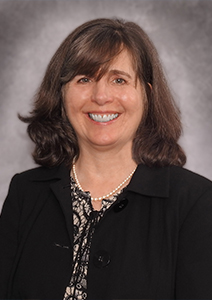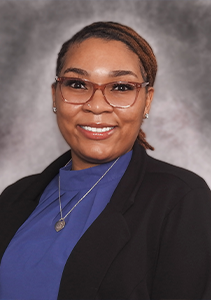Kidneys remove waste and extra fluid from the body and regulate body chemicals.

Kidneys also play an important role in controlling blood pressure, keeping bones healthy, and creating red blood cells.
Nephrology is a division of internal medicine that specializes in kidney function and related diseases. Nephrologists, or kidney specialists, also focus on hypertension or high blood pressure, which is a main cause of kidney-related illnesses.
According to the National Kidney Foundation, 1 in 3 Americans are at risk for kidney disease. Chronic Kidney Disease (CKD) is the ninth leading cause of death in the U.S., but kidney disease can be prevented or managed through simple lifestyle changes.
Many symptoms of kidney diseases are unnoticeable and are usually detected coincidentally through a routine blood or urine test. If left untreated, chronic kidney disease can develop into End Stage Renal Disease or full kidney failure, which requires dialysis or a kidney transplant.
What are the Risk Factors and Warning Signs of Kidney Disease?
Kidney disease often has no warning signs, so it can go unnoticed until it is in advanced stages.
If you have diabetes, high blood pressure, have a family history of kidney failure or are over age 60, ask for a simple urine test to screen for protein in your urine, one of the earliest signs of kidney disease. African Americans are also at higher risk of kidney failure due to high rates of diabetes, high blood pressure and heart disease. Some other warning signs include:
-
Acid in urine
-
Blood in urine
-
Diabetes is a major risk factor, so diabetics should be tested every year for kidney disease
-
Family history of chronic kidney disease
-
Hypertension (High blood pressure)
-
Kidney stones
-
Over 50 years of age
-
Short-term kidney failure
If you’ve experienced these signs, see your physician immediately for a blood or urine test to determine if there is a problem.
Common Kidney-related Conditions
-
Chronic kidney disease
-
Cystic diseases of the kidneys
-
Diabetes associated kidney diseases
-
Electrolyte disorders
-
Glomerular diseases (inflammation of the kidneys)
-
Hematuria (Blood in urine)
-
HIV-related illnesses
-
Hypertension (High Blood Pressure)
-
Kidney stones
-
Lupus
-
Proteinuria (Protein in urine)
-
Rare and genetic kidney diseases
-
Recurrent kidney stones
-
Renal failure
-
Urinary infections
Preventing Chronic Kidney Diseases
The best way to prevent chronic kidney disease is to take good care of your body and adopt a healthy lifestyle.
Below are a few easy ways to maintain good care of your health:
-
Exercise
-
Limit foods with high sodium or fat content
-
Not smoking
-
Take medications as prescribed
Treating Chronic Kidney Diseases
Cook County Health’s Nephrology physicians provide comprehensive care within the hospitals, outpatient clinics and the John H. Stroger, Jr. Hospital of Cook County Dialysis Unit.
Inpatient Care
Patients in the emergency, intensive care units (ICU) and other general medical areas receive treatment for acute or short-term conditions, including:
-
Chronic kidney disease
-
Electrolyte disorders
-
Hematuria or related disorders
-
Hypertension
-
Malignant hypertension
-
Proteinuria
-
Suspected secondary hypertension
General Nephrology Clinic
Patients visiting the General Nephrology Clinic receive care for a wide range of conditions, including:
-
Acid-base and serum electrolyte disorders
-
Acute or chronic glomerular diseases
-
Chronic kidney disease
-
Cystic diseases of the kidneys
-
Hypertensions
-
Kidney stones
-
Rare and genetic kidney diseases
For patients with End State Renal Disease (ESRD) or other conditions requiring dialysis, the Dialysis Unit at Stroger Hospital provides both hemodialysis or peritoneal hemodialysis to hospitalized patients in a modern, state-of-the-art facility.
Our dialysis unit is located on the east wing of the second floor of the main hospital. We have eight dialysis stations including an isolation station for providing dialysis treatments to patients. Our unit also serves as a transition unit for patients who are initiated on hemodialysis and waiting for placement at other dialysis units.
We have a dedicated multidisciplinary team that works tirelessly to enhance care for our patients.
Dialysis Unit - Clinic J
John H. Stroger, Jr. Hospital of Cook County
1969 W. Odgen Ave.
Chicago, IL 60612
(312) 864-3919 / (312) 864-3920
Outpatient Renal Clinics
We provide comprehensive wide spectrum diagnostic and therapeutic services to the patients with known or suspected kidney diseases across the Cook County Health system.
Our subspecialty renal clinics specialize in treating patients with:
-
Diabetes associated kidney diseases
-
HIV
-
Lupus
-
Recurrent kidney stones
John H. Stroger, Jr. Hospital of Cook County
1969 W. Odgen Ave.
Chicago, IL 60612
(312) 864-4600
Monday, Wednesday, Thursday and Friday from 1 - 5 pm
Ruth M. Rothstein CORE Center
2020 W. Harrison St.
Chicago, IL 60612
(312) 572-5400
Tuesday from 1 - 5 pm
Oak Forest Health Center - Building E
15900 S. Cicero Ave
Oak Forest, IL 60452
(708) 633-4293
Wednesday from 9 am to 12 pm and 1 - 5 pm
Thursday from 1 - 5 pm
Sengstacke Clinic
Provident Hospital of Cook County
500 E. 51st St.
Chicago, IL 60615
(312) 572-1424
Monday, Wednesday, Thursday from 1 - 5 pm
High Blood Pressure
What is High Blood Pressure?
High blood pressure (HBP) affects one-third of all Americans.
Causes of HBP can vary; however, many are linked to diet, exercise and stress. If high blood pressure is untreated, it can lead to serious heart conditions, like heart attack or stroke. High blood pressure is also a main cause of kidney diseases. A simple test can detect high blood pressure, which is why it’s important to visit your doctor regularly.
What are the Symptoms of HBP?
-
Dizzy spells
-
Dull headaches
-
Nosebleeds
Treatments
-
Do not smoke
-
Eat less fat and more whole grains, fruits and vegetables
-
Exercise regularly
-
Limit alcohol use


